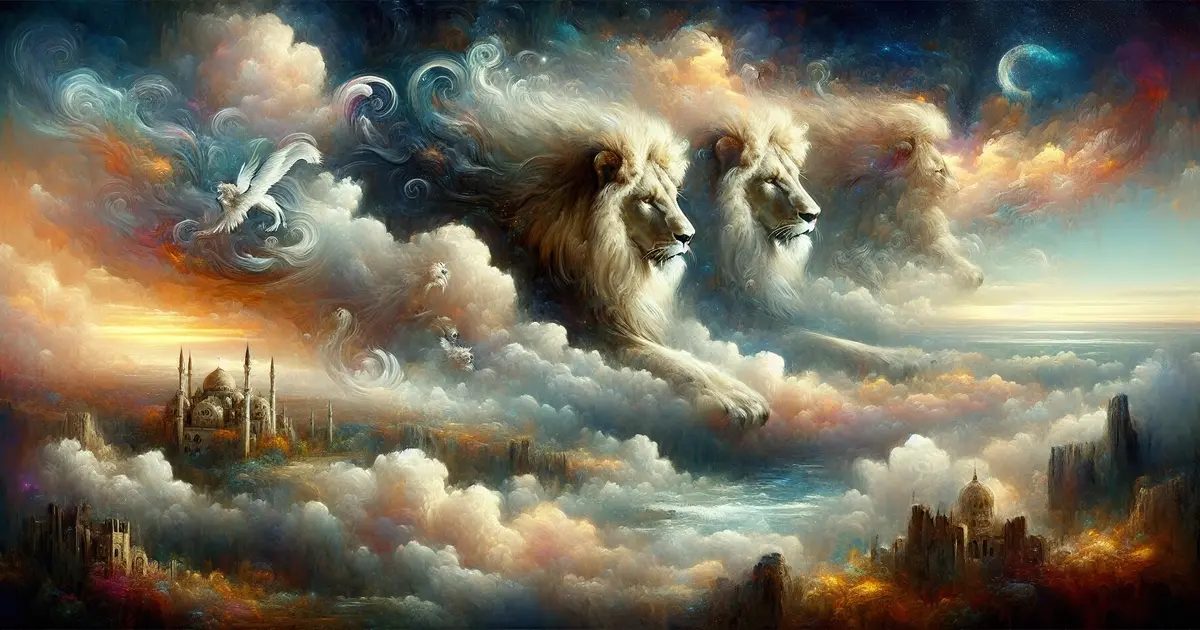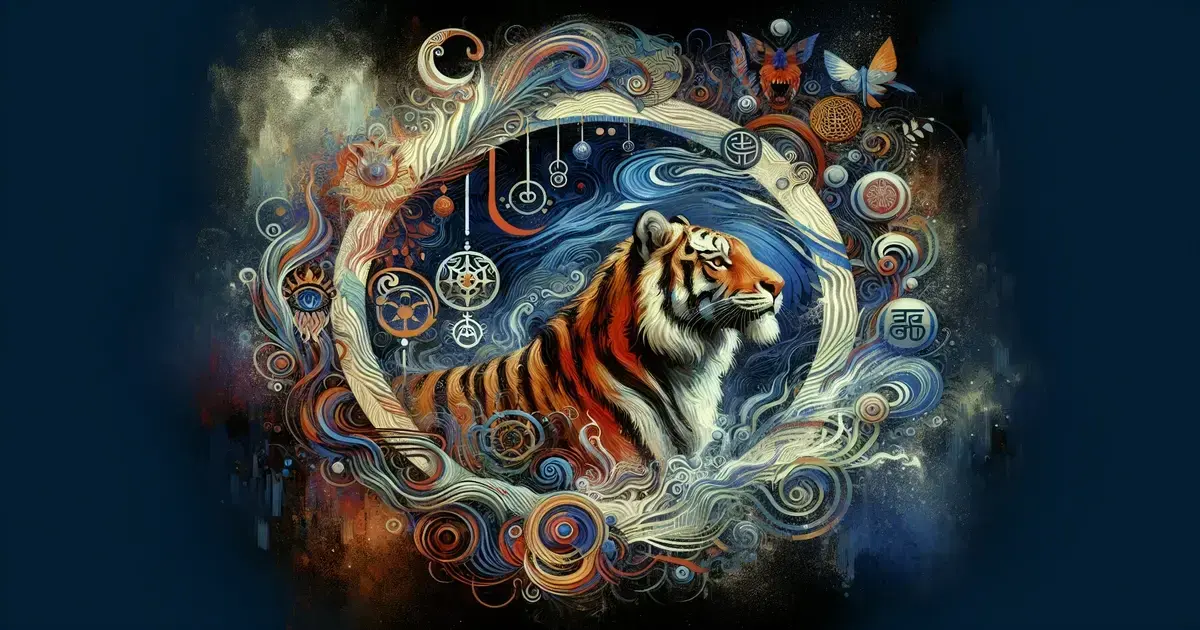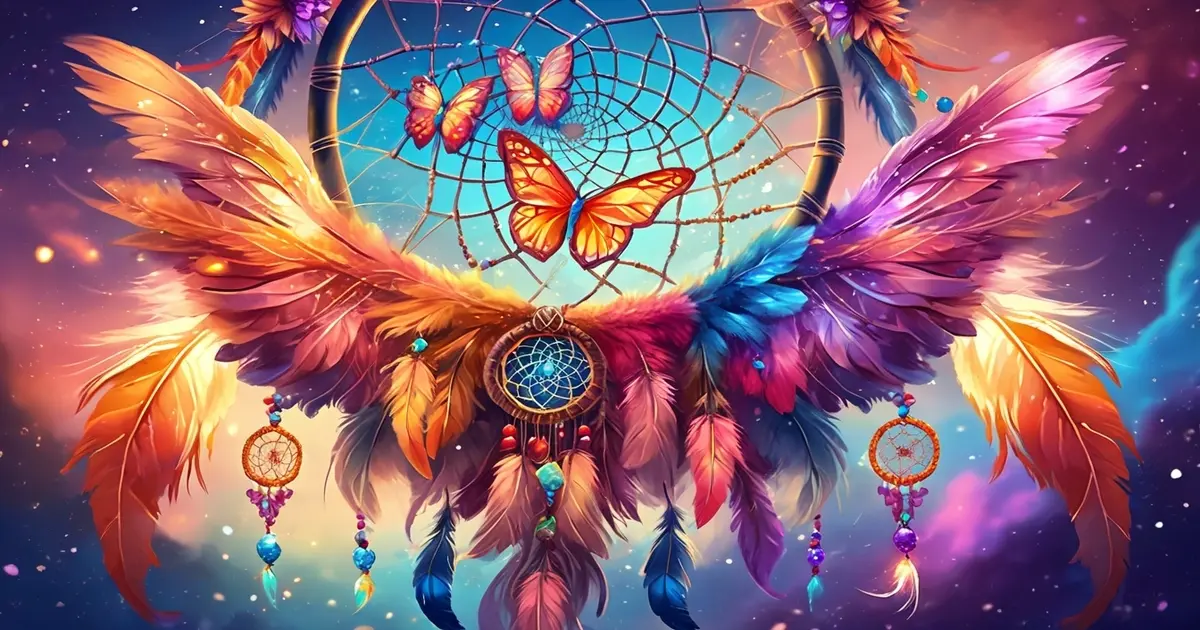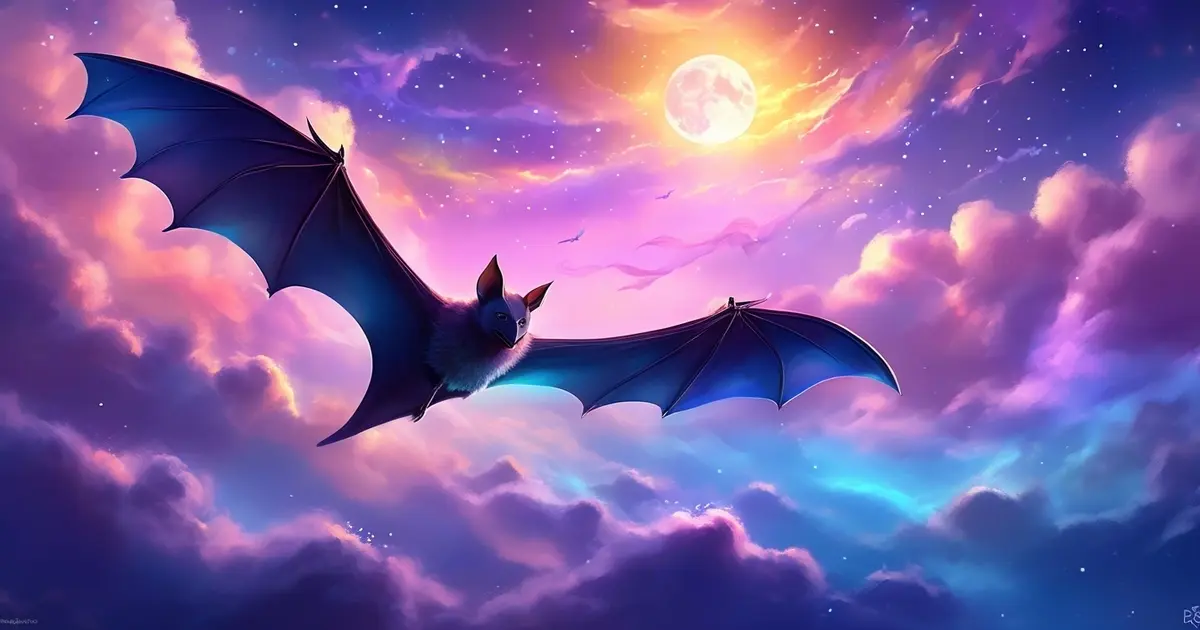Dreams about Wolves: Symbolism and Spiritual Meaning
Unlock the hidden symbolism and spiritual meaning of dreams about wolves. Discover the true interpretation and significance of wolf dreams.
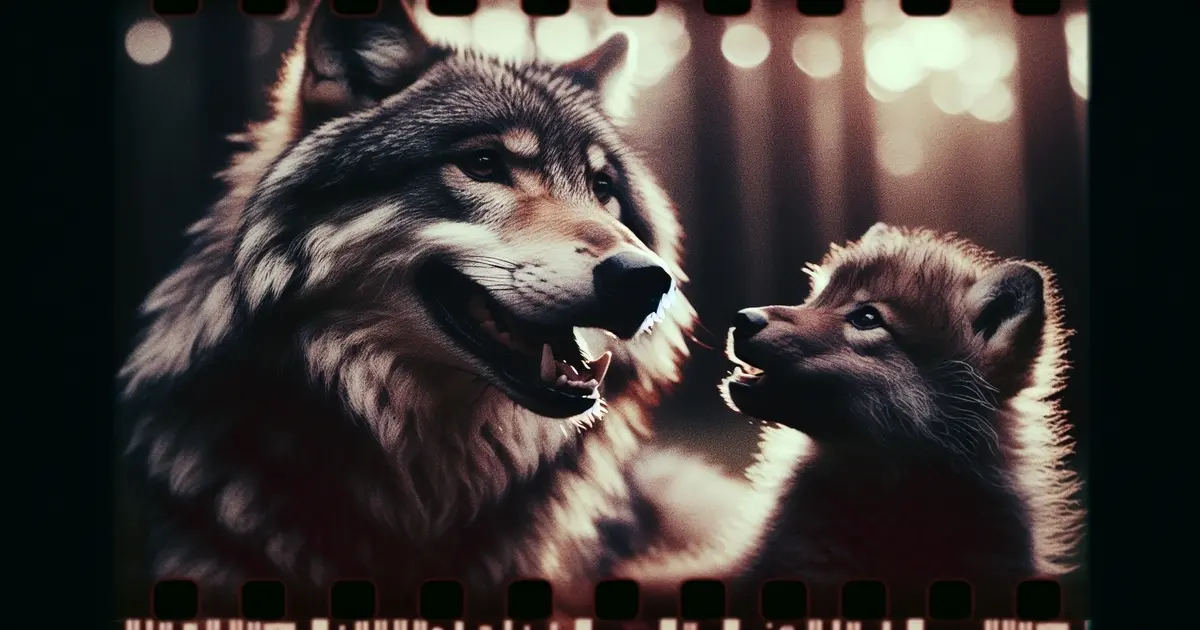
“ Dreams about wolves often symbolize personal growth and inner conflict, highlighting the balance between independence and connection. “
Dreams about wolves have intrigued humans for centuries. These majestic creatures often symbolize power, instinct, and mystery in various cultures. From ancient folklore to modern interpretations, wolves in dreams can reveal deep insights into our subconscious mind.
They might represent hidden fears or untapped potential lurking within us. Some even believe that dreaming of wolves is a call to embrace one's wild side or confront challenges head-on. Understanding these dreams can provide valuable guidance and self-awareness.
As you explore the meaning behind your nocturnal visions, consider the historical significance and cultural symbolism associated with wolves. This knowledge can offer a fresh perspective on what your dreams are trying to communicate. Dive into this fascinating topic and uncover the secrets your mind holds when it conjures images of wolves.
Key Takeaways
- Dreams about wolves often symbolize personal growth and inner conflict, highlighting the balance between independence and connection.
- Cultural and spiritual contexts can influence wolf dream interpretations, with wolves representing guidance, protection, or fear.
- Understanding the psychological aspects of wolf dreams can provide insights into your subconscious mind and emotional state.
- Whether friendly or aggressive, the wolf's nature in your dream can affect its meaning, reflecting positive attributes or challenges.
- Analyzing common wolf dream scenarios can help you identify recurring themes that need attention or resolution.
- Consider the emotional impact of your wolf dreams, as they can reveal underlying fears or desires that might influence your waking life.
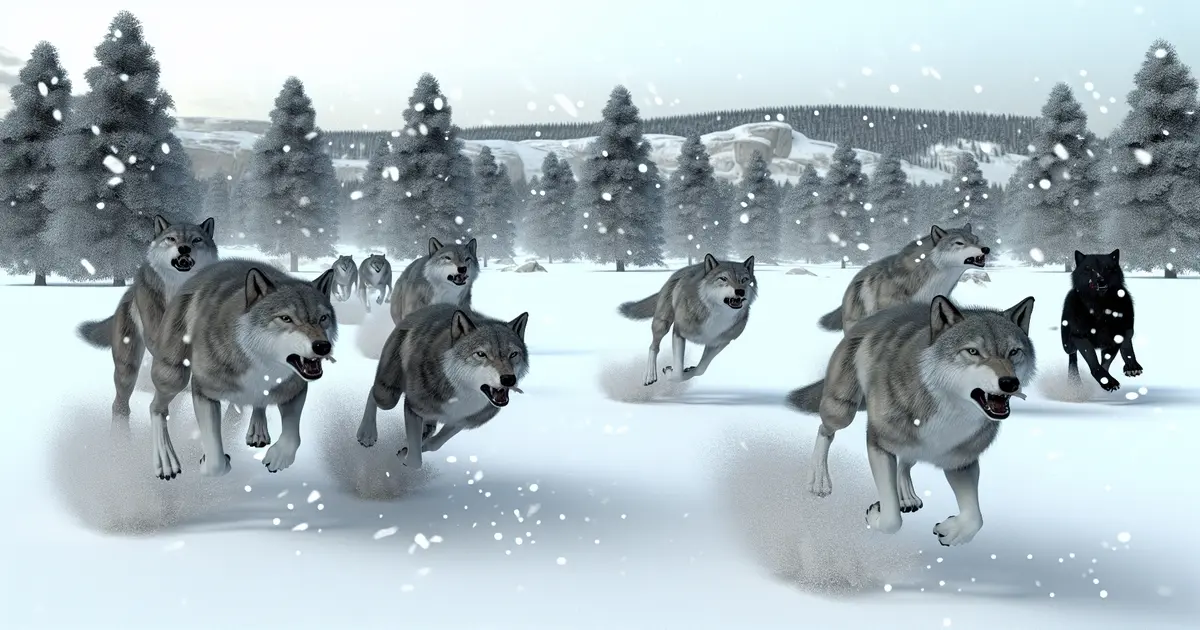
The Symbolism of Wolves in Dreams
Instincts and Primal Urges
Wolves are often seen as symbols of instincts and primal urges. This is due to their nature as carnivorous animals that hunt in packs. Dream wolves might represent the dreamer's instincts. These dreams can indicate a need to connect with one's inner self. They may also suggest tapping into hidden strengths.
The most prominent wild member of the Canidae family, the wolf embodies raw power. With more than 30 recognized subspecies, they are adaptable creatures. Their presence in dreams can signify embracing one's true nature without fear.
Guardianship and Loyalty
Dreams about wolves can symbolize guardianship and loyalty. Wolves are known for their strong pack bonds. They rely on each other for survival, showing deep loyalty to their group. In dreams, this could reflect the dreamer's relationships with others.
Wolves have a long history of interactions with humans. Despite their fear of humans, they have influenced many cultures and religions. The Tsilhqot'in people viewed wolves as both protectors and threats. This duality can appear in dreams, suggesting trust or caution in relationships.
Freedom and Independence
Dreams featuring wolves may indicate a desire for freedom or independence. Wolves roam vast territories, symbolizing the urge to break free from constraints. Those dreaming of wolves might feel trapped in their current situation.
The African wolf, native to various African regions, represents adaptability and survival. It preys on diverse food sources and thrives in different environments. This reflects the dreamer's potential to overcome challenges and seek new opportunities.
Cultural Significance
Wolves hold significant cultural symbolism worldwide. The Big Bad Wolf trope emerged from tales warning against danger in European folklore. However, wolves also appear positively in many foundational mythologies.
In Native American cultures, wolves are associated with witchcraft and spirituality. They serve as guides or warnings in dreams, urging reflection on personal beliefs or actions. African cultures view the African wolf positively and negatively, highlighting its complex societal role.
Cultural and Spiritual Meanings
Native American Views
Native Americans have long viewed wolves as spiritual guardians. They believe wolves guide and protect their tribes. In many tribes, wolves are seen as teachers. They teach people about loyalty, courage, and family bonds. Some tribes consider the wolf a symbol of intuition and instinct. A wolf's howl is regarded as a call to the spirit world.
Norse Mythology
In Norse mythology, wolves hold a powerful place. They are often associated with gods and warriors. Fenrir, a giant wolf, is known for his strength and ferocity. He is destined to play a vital role in Ragnarok, the end of the world in Norse tales. Wolves also accompany Odin, the chief god, serving as his companions. These creatures symbolize both chaos and protection.
Eastern Beliefs
In Eastern cultures, wolves are linked with wisdom and protection. In Japan, they were once revered as spiritual beings. The Japanese wolf, or Nihon ōkami, was seen as a protector of crops from wild boars. Despite its extinction due to disease and persecution during the Meiji Restoration, its spiritual significance persists. In China, wolves are admired for their endurance and intelligence.
Eurasian Wolf Symbolism
The Eurasian wolf is culturally significant across Europe and Asia. Known for its tawny fur and melodious howl, it symbolizes freedom and survival. Many European cultures see it as a guardian of nature. Its reliance on livestock reflects its adaptability in harsh environments, making it a respected folklore figure.
Indian Wolf Significance
The Indian wolf has unique spiritual meanings in Southwest Asia and India. It is smaller than other subspecies but known for its cunning nature. Many stories depict it as clever and resourceful. This wolf's endangered status highlights the need for conservation efforts today.
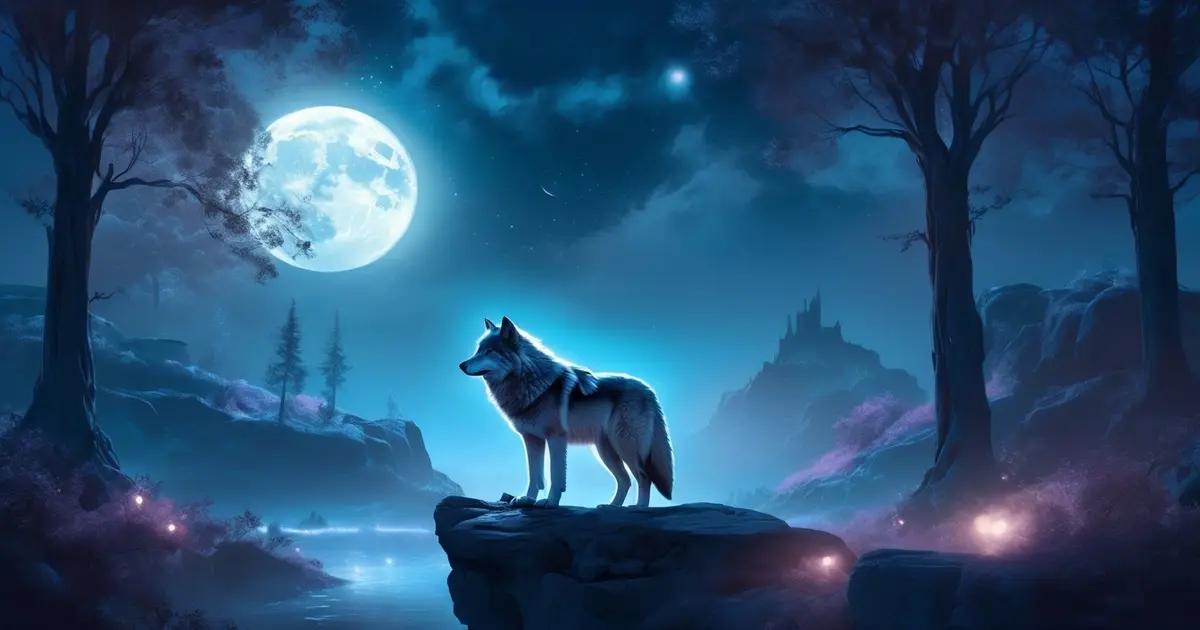
Psychological Interpretations
Emotions and Instincts
Dreams about wolves often tap into deep-seated emotions and instincts. Wolves in dreams can symbolize hidden fears or anxieties, which might be related to personal threats or unresolved issues. The wolf's presence can indicate a struggle with aggression or personal boundaries, reflecting conflicts with others or internal battles.
Wolves are known for their strong instincts. In dreams, they might represent a person's intuition or gut feeling. These dreams can serve as guidance, urging individuals to trust their instincts in real-life situations. This connection between wolves and instinct highlights the importance of being attuned to one's inner voice.
Jung and Archetypes
Carl Jung, a prominent psychologist, explored archetypes in dreams. Wolves could be seen as an archetype representing the shadow self. This part of the psyche contains repressed desires and emotions. Dreams featuring wolves might reveal subconscious desires for leadership or dominance.
Jung believed that understanding these dream symbols could lead to personal growth. Individuals might gain insight into their strengths and weaknesses. This process can help integrate different aspects of the self, leading to a more balanced personality.
Society and Personal Boundaries
In society, wolves are often viewed with fear or admiration. This duality can mirror personal struggles within social settings. Dreams about wolves might highlight issues with authority figures or peers. They could point to feelings of being threatened by others' power.
These dreams may also suggest a need to establish more precise boundaries. The dreamer might feel overwhelmed by external pressures or demands. Addressing these feelings can lead to healthier relationships and improved self-esteem.
Eyes and Attention
The eyes of a wolf in a dream can hold significant meaning. They might draw attention to areas of life that require closer examination. A wolf's gaze could symbolize scrutiny from others or self-reflection.
This focus on the eyes emphasizes the need for awareness and vigilance. It encourages individuals to pay attention to details they might otherwise overlook, which can help them better navigate challenges and opportunities.
Personal Guidance
Wolves often symbolize guidance in dreams. They can appear as protectors or mentors, offering support during difficult times. This guidance might come from within, reflecting the dreamer's wisdom.
Such dreams can inspire confidence and courage. They remind individuals of their ability to overcome obstacles and achieve goals. By embracing this inner strength, people can find direction in their waking lives.
Common Wolf Dream Scenarios
Lone Wolf Encounter
Dreaming of a lone wolf can symbolize solitude. It often represents a person's self-reliance. This dream might occur when someone feels isolated in their waking life. The lone wolf is a powerful image. It embodies independence and strength. In some cultures, such as Native American folklore, wolves are considered wise creatures. They are often depicted as guides or protectors in dreams.
Chased by a Wolf
Being chased by a wolf in a dream can indicate fear. It may reflect avoidance of a problem or situation. This scenario often arises when someone is running from responsibilities or emotions. Historically, wolves have been feared and misunderstood. During the "witch-hunt" phenomenon in Europe, accusations included wolf-riding or wolf-charming. These fears sometimes manifest in dreams as being pursued by a wolf.
Werewolf Transformation
Transforming into a wolf in dreams often symbolizes personal transformation. It can indicate a desire for change or growth. The werewolf, a mythical creature that shape-shifts, shares roots with this idea. Early werewolf beliefs emerged in Europe and influenced modern culture. These transformations may represent an internal struggle or acceptance of one's true self.
Coyote Appearance
Coyotes appearing in dreams might symbolize adaptability. Native to North America, these animals are known for their resilience. Coyotes are prominent characters in Native American folklore and are often depicted as tricksters. Their presence in dreams could suggest the need to adapt to changing circumstances. Coyotes thrive in urban areas, unlike the gray wolf, highlighting their ability to survive anywhere.
Evolutionary Connection
Dreams about wolves might also connect to their evolutionary lineage. Grey wolves have existed for over 2 million years. Studies show distinct sub-populations due to habitat variations. Modern wolves share common ancestry within the last 25-23,000 years. This deep-rooted connection could symbolize a link to one's primal instincts or ancestral heritage.
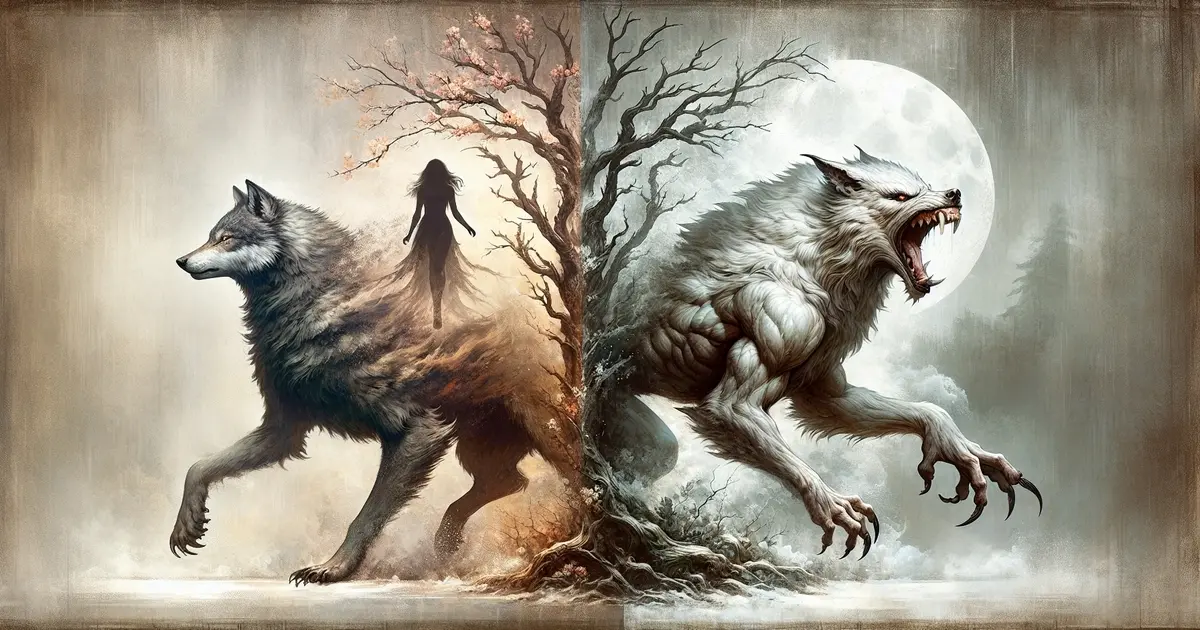
Positive vs Negative Meanings
Symbols of Strength
Wolves often symbolize strength and courage; manys cultures view them as powerful beings. The Amarok, a gigantic solitary wolf from Inuit mythology, embodies this idea. It is known for its strength and hunting prowess. Stories about Amarok highlight the bravery needed to face such a creature, inspiring individuals to find their inner strength.
In some dreams, wolves may represent guidance and protection. This interpretation suggests that someone is watching over you. Wolves are pack animals, emphasizing teamwork and loyalty. Dreams about wolves can encourage unity and cooperation in human relationships.
Representing Threats
On the flip side, wolves can also represent threats or hidden dangers. In many stories, wolves are depicted as cunning predators. This negative image might reflect personal fears or anxieties. For instance, seeing a wolf in a dream could indicate that someone feels threatened in their waking life.
In certain cultures, wolves are seen as omens of danger. They may warn of deceit or betrayal by people close to you. Such dreams urge caution and vigilance. Recognizing these signs can help one navigate tricky situations more wisely.
Dual Nature Reflection
Wolves' dual nature reflects personal conflicts. They embody both positive and negative traits. This ambiguity mirrors the complexities within oneself. Dreams featuring wolves might signify internal struggles. They may indicate a clash between one's desires and responsibilities.
The red wolf's unique status highlights this duality. Although it is an endangered species protected under the Endangered Species Act of 1973, despite its low numbers, it is not listed in the CITES Appendices of endangered species. This situation illustrates conflicting perspectives on conservation efforts.
Similarly, the maned wolf plays a crucial role in its ecosystem by dispersing seeds. Yet, it faces threats leading to its near-threatened status by the IUCN. Its story parallels the balance between vulnerability and importance in nature.
Friendly vs Aggressive Wolves
Friendly Wolf
A friendly wolf often symbolizes companionship and support. In dreams, this type of wolf can represent a protective presence. They might symbolize friends or family who offer guidance. Friendly wolves may also indicate a harmonious relationship with one's surroundings.
The Himalayan wolf is an example of a unique and distinct canine. Found in regions like Ladakh and the Tibetan Plateau, it shares genetic markers with the Tibetan and Mongolian wolf. Despite its wild nature, the Himalayan wolf's close ties to humans in these areas reflect a more amicable interaction. This relationship underscores how some wolves can be seen as allies rather than threats.
Aggressive Wolf
An aggressive wolf in dreams often suggests confrontation or unresolved issues. These dreams might signal feelings of danger or fear. Aggressive wolves can also symbolize inner conflicts or external pressures one might be facing.
The northwestern wolf, a subspecies of the gray wolf, is known for its size and strength. This subspecies inhabits areas like Alaska and the Northwestern United States. Its large stature and powerful presence can evoke feelings of intimidation or threat, making equating wolves with aggression in specific contexts easy.
Mixed Behavior
Wolves exhibiting mixed behavior in dreams can reflect complex relationships or emotions. A dream featuring friendly and aggressive wolves might indicate conflicting feelings or situations.
For instance, a wolfdog—a hybrid between a domestic dog and a wolf—represents this dual nature. It embodies traits from both species, showcasing friendliness and potential wildness. This mix of behaviors can symbolize complicated dynamics in real life, where someone close might have unpredictable tendencies.
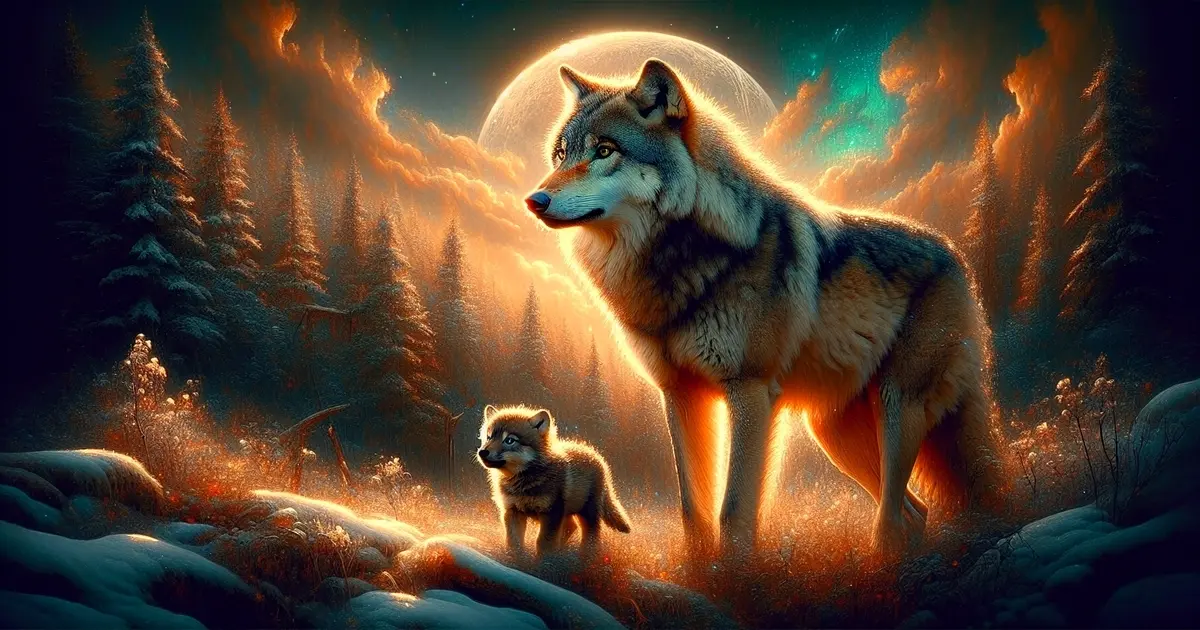
Emotional Impact of Wolf Dreams
Empowerment or Fear
Dreams about wolves often evoke strong emotions. Seeing a wolf can make one feel powerful. Wolves symbolize strength and independence. They are known for their resilience in the wild. This can inspire confidence in dreamers, making them feel capable of overcoming obstacles.
On the other hand, wolves can also represent fear. Black wolves, for instance, might appear intimidating. These wolves are melanistic variants of gray wolves. Their dark fur comes from a genetic mutation linked to domestic dogs. Seeing a black wolf in a dream might trigger feelings of danger or unease.
Personal Life Challenges
Wolf dreams can prompt introspection about personal challenges. Dreamers may see wolves as guides through difficult times. The Arctic wolf, native to Canada's Queen Elizabeth Islands, survives harsh conditions. Its ability to thrive in the tundra symbolizes endurance and adaptability.
This imagery can lead individuals to reflect on their struggles and encourage them to find strength within themselves. The Arctic wolf's smaller size and white coloration distinguish it from other wolves. These unique traits remind dreamers that differences can be strengths.
Mood and Perspective
Waking up from a wolf dream can alter one's mood and perspective. A friendly wolf encounter might leave someone feeling positive and hopeful. Wolves have been hunted for sport and protection for over 8,000 years. This history reflects human fascination with these creatures.
However, aggressive wolf dreams can bring anxiety or fear. In the Middle Ages, hunting decimated wolf populations in France. Such historical events highlight the complex relationship between humans and wolves.
Personal Growth and Inner Conflict
Inner Strength
Dreams about wolves often symbolize inner strength. Wolves are known for their resilience and survival instincts. In ancient times, people used wolf-baiting to train dogs for combat. This practice highlighted the wolves' formidable nature. A wolf's ability to fight against multiple dogs demonstrates its power. Theodore Roosevelt even noted that a large mastiff could match a young wolf. Such comparisons emphasize the wolf's strength. These dreams encourage individuals to reflect on their resilience. They prompt self-reflection on how one can overcome personal challenges.
Relationships
Wolves also represent complex relationships. In the wild, wolves live in packs, relying on each other for survival. This dynamic mirrors human interactions. Dreams about wolves can highlight conflicts within relationships. These conflicts may arise from differing desires and responsibilities. Understanding these dynamics helps in resolving disputes with loved ones. By examining these dreams, one can gain insight into maintaining harmony in relationships.
Peace and Freedom
While wolves are often seen as fierce, they also embody peace and freedom. These animals roam vast territories, symbolizing the desire for freedom and exploration. Dreams of wolves might indicate a longing for independence or peace in life. Historically, humans have hunted wolves using specially bred dogs, reflecting their elusive nature. The dreamer might feel like an outsider yearning for tranquility away from daily struggles.
Journey of Self-Discovery
Another theme in Wolf Dreams is the journey of self-discovery. Wolves travel long distances in search of food and shelter. This journey represents one's path toward better understanding oneself. It involves confronting inner shadows and embracing personal growth. The historical context of wolf hunting reveals the struggle between man and beast, mirroring internal battles individuals face.
Embracing Nature
Wolves are deeply connected to nature, living harmoniously with their surroundings. Dreaming of wolves might signify a need to reconnect with nature or embrace instincts. It encourages individuals to find comfort in simplicity and authenticity. This connection with nature can lead to personal growth and a more fulfilling life.
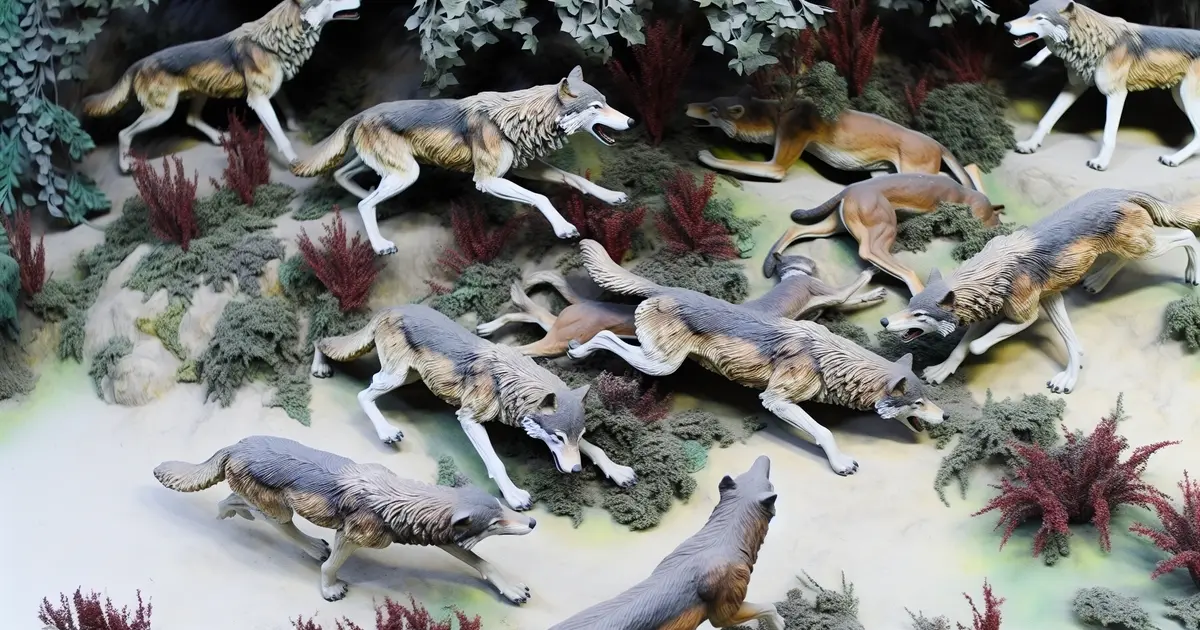
Final Remarks
Dreams about wolves are a wild ride through symbolism, culture, and psychology. Whether friendly or fierce, these dreams can reveal your inner thoughts and emotions. Are they guiding you toward personal growth or highlighting inner conflicts? It's all about how you interpret them.
Dive deeper into your wolf dreams and explore their meanings. Don't just brush them off; they might hold the key to understanding yourself better. Keep a dream journal, reflect on recurring themes, and embrace the journey of self-discovery. Share your insights with others, and let's unravel these mysteries together. Ready to unlock the secrets your dreams hold? Start paying attention tonight. Your subconscious might surprise you!
Frequently Asked Questions
Recent Dreams
Other Dreams
Read more dream interpretations
Dive into the realm of dreams. Explore various dream interpretations. Enhance your understanding of what your dreams could be telling you.
About the author
We provide insights to harness the power of your dreams, improving not just your nighttime narrative, but your daily life as well.




